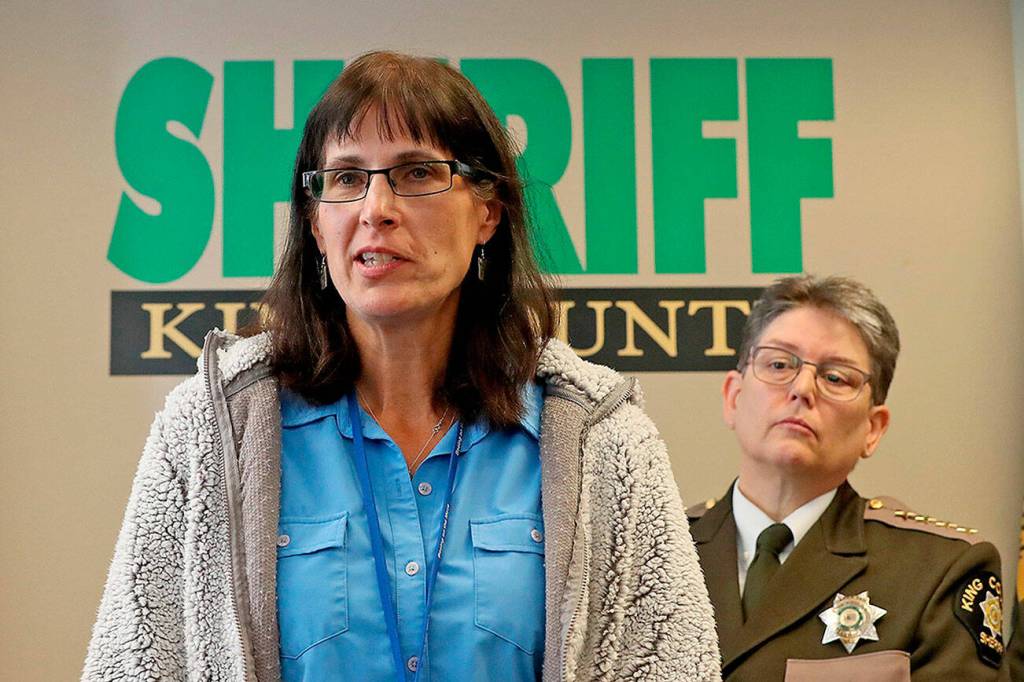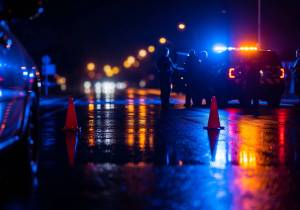Judge: Detective made false statements to obtain warrant
Published 1:30 am Tuesday, December 21, 2021


By Gene Johnson / Associated Press
SEATTLE — A longtime King County sheriff’s detective made several false statements under oath when she obtained a search warrant in a murder case three years ago — resulting in a man’s false arrest on drug charges, newly unsealed federal court orders show.
Detective Kathleen Decker, a now-retired 33-year veteran of the King County Sheriff’s Office, was looking for a murder weapon when she asked a Washington state judge for a warrant to search the car and apartment of Seattle resident Gizachew Wondie in 2018. At the time, federal agents were separately looking into Wondie’s possible involvement in selling drugs.
Wondie was not a suspect in the homicide, but Decker’s search warrant application said a gun he owned was the same weapon that had been used to kill 22-year-old Amarah Riley as she was driving in Skyway, just south of Seattle, a few months earlier.
In reality, Decker was aware that the gun was only a potential match for the murder weapon and that further testing was required to prove it, U.S. District Judge Richard A. Jones said in court orders that were unsealed on Friday.
Further, Decker falsely claimed that a different Black man pictured in an Instagram photo holding a gun was Wondie, and that Wondie had a “propensity” for violence, when in reality he had never been accused of a violent crime. Decker also omitted information from her search warrant application that suggested Wondie no longer possessed the gun she was looking for.
“The Court concludes Detective Decker’s noted statements in the affidavit can only be reasonably construed as reckless conduct, if not intentional acts,” the federal judge wrote. “This is particularly so for a 33-year veteran detective working in Major Crimes, investigating homicide, robbery, and felony assault cases. Detective Decker was seeking a search warrant for evidence of the crime of Murder in the First Degree. Her attention to accuracy and truth should have been paramount, but that was not the case in the affidavit she submitted.”
Decker was the sheriff’s office detective of the year in 2018. The department called her “an outright legend” in a Facebook post marking her retirement last year.
The King County Sheriff’s Office said Monday it is reviewing the judge’s orders, which were issued in July, and noted Decker’s “34 years of commendable service.” Decker did not immediately respond to a message sent through social media. During a court hearing earlier this year to examine the validity of the search warrant, she acknowledged some of her statements were incorrect or exaggerated, but she said she did not deliberately mislead the judge who issued the warrant.
Wondie sued Decker and King County earlier this month for civil rights violations.
“This case demonstrates how frail the justice system can be when truth is disregarded in favor of a false and convenient narrative tailored for an expedient result,” Wondie’s attorney, Dan Fiorito, said in an email Monday.
Riley was killed in September 2018. In early December that year, Decker obtained a search warrant for Wondie’s car and apartment from King County Superior Court Judge Kristin Richardson. Two days later, Decker had a special weapons and tactics team confront Wondie as he parked his car near Seattle Central College, where he was studying computer science.
The SWAT team was led by Detective George Alvarez, who had a troubled history with the sheriff’s office and was fired earlier this year for his actions leading to a man’s fatal shooting in 2019; he is also named as a defendant in Wondie’s lawsuit. The SWAT team arrested Wondie and found drugs on him, although Decker acknowledged during her testimony at the court hearing that there was no probable cause to arrest him.
Investigators then questioned Wondie, learned he had another apartment and obtained a separate warrant to search that apartment — where they found 11,000 Xanax pills, 171 grams of cocaine, a pill press and other evidence of drug dealing.
He was charged federally with possession of drugs with intent to distribute and possession of a firearm in furtherance of drug trafficking.
Wondie’s attorneys, federal public defenders Mohammad Hamoudi and Sara Brin, challenged the charges against him, saying that but for Decker’s false statements, investigators would not have had grounds to confront their client, interview him or discover any evidence of drugs.
Last June, the federal judge held a two-day hearing at which Decker testified. Jones subsequently agreed with Wondie’s arguments, suppressing all of the evidence against him, and the U.S. Attorney’s Office in Seattle was forced to dismiss the charges. Jones initially sealed his orders to protect details of the homicide investigation, but agreed to unseal them with redactions at the request of Wondie’s attorneys.
In an emailed statement Monday, Emily Langlie, a spokeswoman for the U.S. Attorney’s Office in Seattle, said prosecutors had pursued the case against Wondie despite “some errors” in the search warrant because they believed the separate drug investigation into Wondie provided independent justification for the search.
“In light of the substantial public safety concerns occasioned by the defendant’s activities, we believed that it was appropriate to continue to pursue the prosecution and defend the search,” Langlie wrote.
One of the key issues was Decker’s use of the National Integrated Ballistic Information Network, a program run by the Bureau of Alcohol, Tobacco, Firearms and Explosives that can help police link crime-scene evidence to guns that have been previously used in crimes. The results of queries to the NIBIN network come back quickly, but they can yield false-positives and require further in-person examination by a firearms examiner to confirm.
Wondie’s gun had been seized by Seattle police in 2017, after he had reportedly brandished it in public. Charges against him were dropped in that case and the gun was returned, but while police had it, they test-fired it and entered the images of the shell casing into the ATF’s network.
When investigators recovered shell casings from the scene of Riley’s homicide, Decker sent one for testing through the network. It yielded a possible hit to Wondie’s gun. But further confirmation could not be obtained. Because Seattle police had destroyed the shell casing from the test-fire, it was not available for microscopic comparison to the casing recovered from Riley’s killing.
Nevertheless, Decker wrote in her affidavit that “the test results link conclusively to the shell casings collected from the Amarah Riley murder scene.”
That misrepresentation was “far more egregious … than to be classified as mere negligence,” Jones wrote.
Decker was a respected and well-known detective. She instructed others in law enforcement on investigative techniques, including the art of tracking people through woods or fields.






